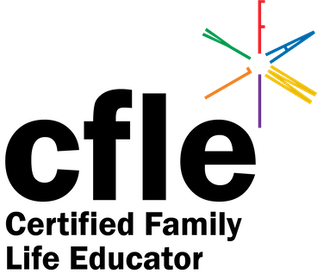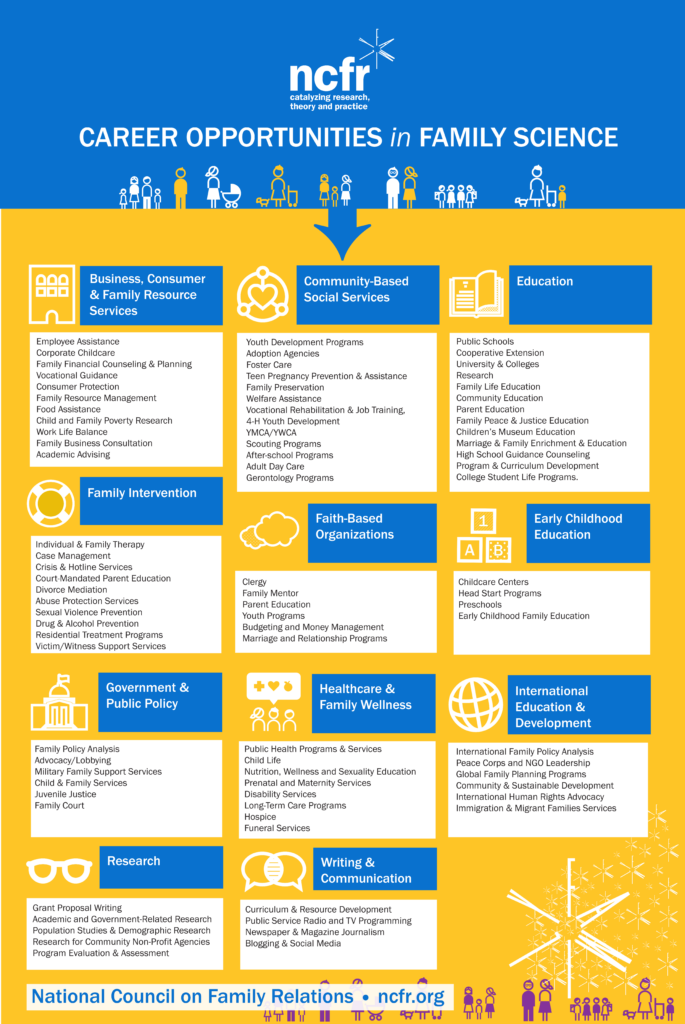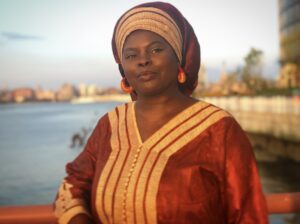Becoming a Certified Family Life Educator
The Department of Human Development & Family Science is proud to announce that our program has been approved to offer students the opportunity to become a Certified Family Life Educator.
The Certified Family Life Educator (or CFLE) credential is obtained through the National Council on Family Relations (NCFR). It is a nationally recognized standard in Family Life Education and validates a professional’s experience and knowledge as a Family Life Educator. The two ways to become a CFLE are to graduate from a CFLE-approved program, which includes FSU’s Bachelor of Science in Human Development and Family Science, or take the CFLE exam.
CFLEs have proven knowledge in 10 areas including:

Family Life Education is the professional practice of equipping and empowering family members to develop knowledge and skills that enhance well-being and strengthen interpersonal relationships through an educational, preventive, and strengths-based approach.
The skills and knowledge needed for healthy family functioning are widely known:
The goal of Family Life Education (abbreviated FLE) is to teach these skill and knowledge areas to family members across the lifespan, and foster positive individual and family development so families can function optimally.
Click here to see the NCFR's Family Life Education Fact Sheet
The B.S. in Human Development and Family Science is an NCFR-approved program for the provisional CFLE credential, meaning our program and coursework at the College of Health and Human Sciences can fully prepare you to become a CFLE.
Recent graduates can apply for provisional or full CFLE certification through the NCFR. Interested students must complete all courses on our checklist with grades of C- or better (in addition to an internship/practicum of at least 120 hours) to qualify for the CFLE application process.
Applicants must apply online through the CFLE-approved program application process within two years of graduation, and all courses on the checklist must have been completed no more than seven years prior to graduation.
Applicants eligible to apply through the CFLE-approved program process do not need to take the CFLE exam.
While Certified Family Life Educators (CFLEs) may work specifically in one field, such as parent education or marriage enrichment, their understanding of the many issues that affect today’s families enables them to be more effective in educating and working with individuals and families. The CFLE credential recognizes the educational, preventive, and enriching nature of their work.
Additionally, standards identified for certification help increase awareness and understanding of Family Life Education as a profession.
A CFLE credential increases your credibility by showing you’ve met the high standards and criteria needed to provide quality family life education, validates your education and experience, recognizes your expertise, gives you access to a variety of NCFR resources, and more.
Click here to learn more about the benefits of becoming a Certified Family Life Educator.
CFLE-Approved Program Coursework
| CFLE Content Area | Coursework | |
|---|---|---|
| 1. Families & Individuals in Societal Contexts | FAD 2230 – Family Relationships: A Life-Span Development Approach AND FAD 4265 – Family Diversity |
|
| 2. Internal Dynamics of Families | FAD 3432 – Stress and Resilience in Individuals & Families AND FAD 4265 – Family Diversity |
|
| 3. Human Growth & Dev across the Lifespan | CHD 2220 – Child Growth and Development AND CHD 3243 – Contexts of Adolescent Development AND FAD 3343 – Contexts of Adult Development and Aging |
|
| 4. Human Sexuality | Prior to Fall, 2020: FAD 4451 – Human Sexuality Education OR SOW 4152 – Human Sexuality Fall, 2020 and beyond: FAD 4451 – Human Sexuality Education |
|
| 5. Interpersonal Relationships | FAD 4601 – Foundations of Counseling AND FAD 2230 – Family Relationships: A Life-Span Development Approach |
|
| 6. Family Resource Management | FAD 3432 – Stress and Resilience in Individuals & Families AND FAD 4455 – Family Life Education |
|
| 7. Parent Education & Guidance | CHD 4537 – Parenting | |
| 8. Family Law & Public Policy | CHD 4615 – Public Policy: Child & Family Issues | |
| 9. Professional Ethics & Practice | FAD 4932 – Pre-Professional Development AND FAD 4455 – Family Life Education |
|
| 10. Family Life Education Methodology | FAD 4455 – Family Life Education | |
| Internship/Practicum (minimum 120 hours) | FAD 4805 – Practicum in Family and Child Science |
Click here for the printable PDF checklist.
Find more information and forms at: ncfr.org/cfle-approved-program.
There likely are numerous instances of Family Life Education occurring in your community on any given day. Family Life Educators work in health care settings, community education, faith communities, junior and senior high schools, colleges and universities, social service agencies, corporate settings, government agencies, corrections, retirement communities, and the military, and more.
| Category | Services |
|---|---|
| Business, Consumer & Family Resources | Employee Assistance programs, Corporate Day Cares, Consumer Protection Agencies, Family Financial Counseling & Planning Agencies, Food Assistance Programs, Research positions. |
| Community-Based Social Services | Youth Development Programs, Adoption Agencies, Foster Care Programs, Teen Pregnancy Services, Welfare Assistance, Vocational Rehabilitation & Job Training, Adult Day Care, Gerontology and Long-Term Care Programs. |
| Early Childhood Education | Day Care Centers, Head Start Programs, Montessori Schools, Child Development Organizations. |
| Education | Public School Teaching in Family & Consumer Sciences with state licensure, University Teaching, Family Science Research, Family Life Education, Sexuality Education, Parenting Education, Marriage & Family Enrichment Programs, Curriculum Development, community education. |
| Faith-Based Organizations | Ministry, Family Life Education, Parenting Education, Youth Programs. |
| Family Intervention | Individual & Family Therapy Support Services, Crisis & Hotline Services, Divorce Mediation, Abuse Protection Services, Drug & Alcohol Prevention Programs, Residential Treatment Programs. |
| Government & Public Policy | Family Policy Analysis, Child Welfare Advocacy, Cooperative Extension Specialist, Military Family Support Services, Departments of Child & Family Services, Parent Coordination. |
| Health Care & Family Wellness | Public Health Programs & Services, Hospital Based Family Support, Nutrition Education, Prenatal and Maternity Services, Holistic Health Centers, Long-Term Care Settings, Hospice Programs. |
| International Education & Development | International Family Policy, Peace Corps and NGO Leadership, Global Family Planning Programs, International Human Rights Advocacy, Immigration & Migrant Families Services. |
| Research | Grant Proposal Writing, Academic and Government Research in Family Science, Population Studies & Demographic Research, Community-Based Research for Non-Profit Family Agencies, Program Evaluation & Assessment. |
| Writing & Communication | Curriculum & Resource Development in Family Life Education, Media and Technology Settings, Newspaper & Magazine Writing. |

Coming soon!
For more information, contact:

Kani Diop-Lo, Ph.D.
kdiop@fsu.edu
Associate Teaching Professor
HDFS Graduate Program Director
FSU-NCFR-CFLE Coordinator